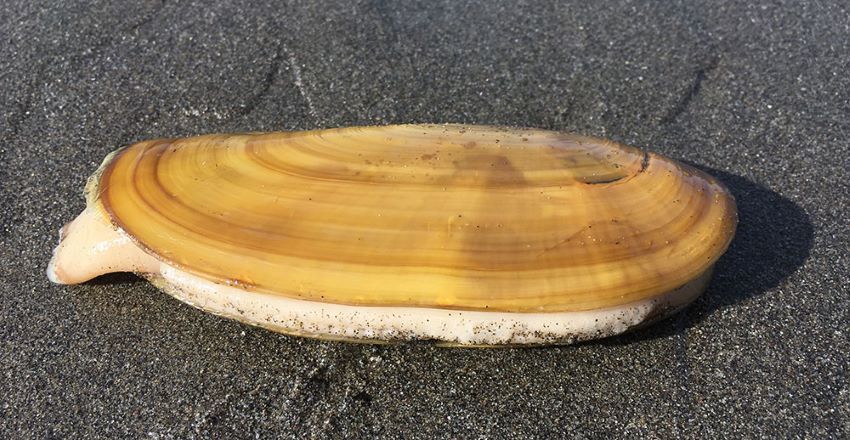The recreational razor clam fishery in Humboldt County has been closed by the California Department of Fish and Wildlife (CDFW) Director Charlton H. Bonham. This decision was made after state health agencies found that consumption of razor clams in the area poses a significant threat for exposure to domoic acid, a potent neurotoxin produced by the marine alga Pseudo-nitzschia under certain ocean conditions.
Bivalve shellfish like clams and mussels are known to accumulate the toxin without being harmed. Razor clams, in particular, are known to bioaccumulate domoic acid, meaning the toxin may not clear their system until long after the ocean conditions that caused it have abated. As a result of sampling in late April, razor clams from Clam Beach in Humboldt County were found to exceed the federal action level for domoic acid of greater than or equal to 20 parts per million.
Domoic acid poisoning in humans can occur rapidly after consumption of affected seafood and can lead to symptoms ranging from vomiting and diarrhea to permanent loss of short-term memory, coma, or even death. Cooking and freezing clams have no effect on removing the toxin, making them unsafe for consumption. The recreational razor clam fishery in Del Norte County has also been closed since November 2023 due to elevated levels of domoic acid.
The closure of the recreational razor clam fishery in Humboldt County will remain in effect until state health agencies determine that razor clams no longer pose a health risk. CDFW will continue to work with the California Department of Public Health (CDPH) and Office of Environmental Health Hazard Assessment to monitor and analyze razor clams. For the latest information on fishing closures and health advisories, visit the CDFW website. To get information on fishing season closures related to domoic acid, call the Domoic Acid Fishery Closure Information Line at (831) 649-2883. For the latest consumption warnings, call CDPH’s Biotoxin information Line at (510) 412-4643 or toll-free at (800) 553-4133.
